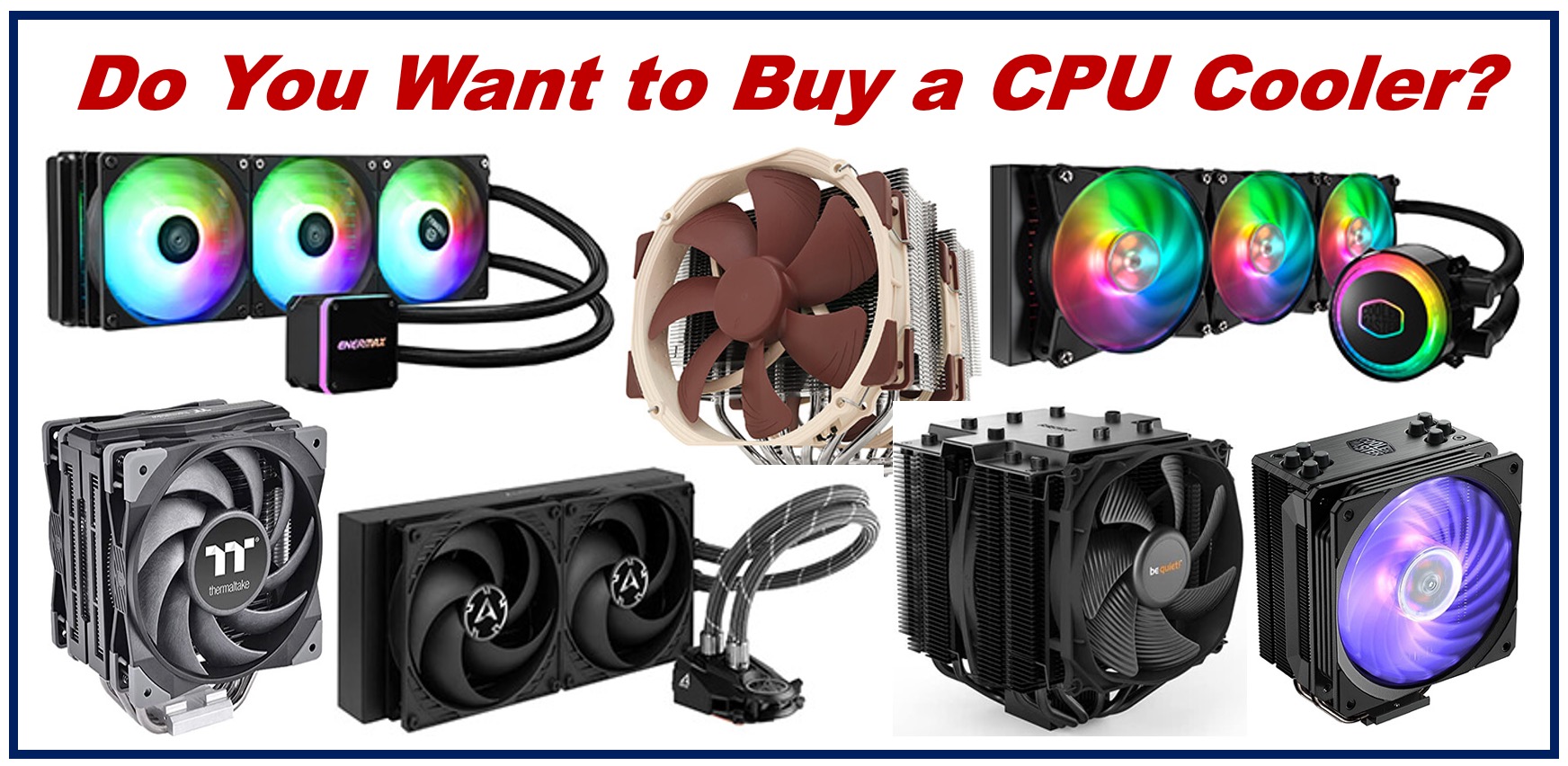When it comes to desktop computer processors, more heat means less performance. It would help if you had a good CPU cooler to keep your processor running at its best. But with so many different types of coolers on the market, how do you choose the right one for your needs?

You need to consider several factors when choosing a CPU cooler, including the type of computer, the size of the case, and the amount of heat that the CPU produces.
The type of computer is essential because some coolers are better suited for different kinds of computers. For example, tower coolers are best for desktop computers, while low-profile coolers are best for laptops.
The size of the case is also essential because you need to make sure the cooler will fit inside the case. Some coolers are very large and may not fit in some smaller cases.
The amount of heat that the CPU produces is also a factor to consider because some coolers are better suited for CPUs that produce more heat. If your CPU produces a lot of heat, you may need a more powerful cooler.
There are many different types of coolers on the market, so it’s essential to research to find the best one for your needs. Choosing the right CPU cooler can be a daunting task with many factors to consider. But if you take the time to view all the factors and do your research, you can find the best cooler for your needs.
Quick Shopping Tips
Here are some quick tips to help you choose the best CPU cooler for your needs:
-
CPU Socket
The CPU socket is the first factor you need to consider when choosing a CPU cooler. There are different types of sockets, and not all coolers will work with all sockets. Check your CPU socket and find a cooler compatible with that socket.
-
TDP
The TDP, or thermal design power, is the amount of heat produced by the CPU. Some CPUs produce more heat than others. If your CPU has a high TDP, you need a cooler to keep it cool. An excellent way to check the TDP of your CPU is to look up specs online or in the manual.
-
Size of the Cooler
Make sure to check the size of the cooler before buying it. Some coolers are very large and may not fit in smaller cases. If you also consider the airflow in your case, the cooler should not block any airflows.
-
Type of Cooler
There are several different types of coolers, and each has its benefits and drawbacks. The most common type of cooler is the air cooler. Air coolers use fans to blow air over the heatsink to cool the CPU. They are usually cheaper than other coolers and are easy to install. Water coolers use water to cool the CPU. They are more effective than air coolers but are more expensive and harder to install. All-in-one water coolers come with everything you need to install them, making them easier to install than traditional water coolers.
-
Fan Speed
The fan speed is measured in RPM, or revolutions per minute. The faster the fan spins, the more air will move, and the better cooling your CPU. However, high-speed fans can be noisy. Check the noise level of the cooler before buying it.
-
Noise Level
The noise level is measured in dBA or decibels. If you are sensitive to noise, choose a cooler with a low noise level.
-
Warranty
Most coolers come with a warranty. The length of the warranty varies from manufacturer to manufacturer. Make sure to check the warranty before buying a cooler. Some manufacturers offer more extended warranties than others.
-
Price
It would help if you considered the price when choosing a CPU cooler. Coolers range in price from around $30 to $100 or more. Choose the best cooler you can afford while still staying within your budget.
Conclusion
You need to consider many factors when choosing the best CPU cooler for your needs. Before deciding, make sure to research all of the different types of coolers and their benefits. Consider the size of your case, the TDP of your CPU, and how noisy the fan is before purchasing.

